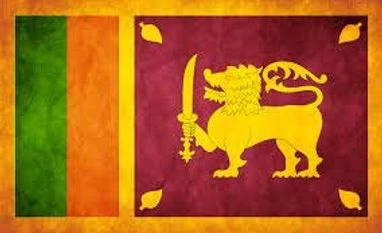UN vote on Sri Lanka adopted, India abstains
Resolution against Sri lanka adopted with 23 voting in favour and 12 against.
)
In a move that will please Colombo, India joined 11 other countries that abstained from voting on a UN Human Rights Council resolution in Geneva calling for a probe into alleged war crimes by Sri Lanka. However, the resolution was adopted with 23 voting in favour and 12 against.
The 47-member UNHRC accepted the resolution presented by the US on behalf of countries, including Britain.
China and Pakistan voted against the resolution. Sri Lanka "categorically" rejected the resolution that called for a probe into war crimes allegedly committed in the final stages of the war against the Liberation Tigers of Tamil Eelam (LTTE).
Rejecting the resolution, India said it ignores the efforts at reconciliation being done by Sri Lanka in the predominantly Tamil north, including holding of elections.
Contrary to what was widely expected to be a repeat of earlier moves of backing the UN resolution, India Thursday said it "cannot go along with the resolution and will abstain on the resolution under consideration".
Also Read
This was for the first time since 2009 that India abstained from voting on the resolution - "Promoting reconciliation, accountability and human rights in Sri Lanka".
India had in 2009, 2012 and 2013 voted in favour of the resolutions.
"In asking the Office of the UN High Commissioner for Human Rights (OHCHR) to investigate, assess and monitor the human rights situation in Sri Lanka, the resolution ignores the progress already made by the country," said Dilip Sinha, India's Permanent Representative to the UN in Geneva.
India said it was "concerned that the resolution has the potential to hinder efforts of the country rather than contribute constructively to its efforts, and hence inadvertently complicate the situation".
It said Sri Lanka during the past year has undertaken "some notable developments", including honouring its commitment to the international community to hold elections to the Northern Provincial Council, promoting the official use of the Tamil language and the upgrading of schools in the Northern and Eastern Provinces.
"At the same time, the report also notes that the government of Sri Lanka has failed to ensure independent and credible investigations into past violations of international human rights and humanitarian law," it said.
It called for implementation of the recommendations contained in the report of the Lessons Learnt and Reconciliation Commission (LLRC), including those pertaining to missing people, detainees, reduction of high security zones, return of private land by the military and withdrawal of security forces from the civilian domain in the Northern Province.
It termed the elections to the Northern Provincial Council in September last year as a "significant step forward" but noted that "much more needs to be done towards a meaningful devolution of powers".
"It (Sri Lanka) needs to continue to take specific measures towards broad-based, inclusive, meaningful and genuine reconciliation with the minority Tamil community. We call on the government of Sri Lanka to make purposeful efforts to fulfil its commitments, including on the devolution of political authority through the full implementation of the 13th Amendment of the Constitution of Sri Lanka and build upon it."
India also said as Sri Lanka's closest neighbour and with thousands of years of relations, "we cannot remain untouched by developments in that country".
It said India remains engaged in a substantial way in the relief, resettlement, rehabilitation and reconstruction process in Sri Lanka.
On the matter of addressing human rights violations, India said the UNHRC's efforts should "be in a direction to enable Sri Lanka to investigate all allegations of human rights violations through comprehensive, independent and credible national investigative mechanisms and bring to justice those found guilty" and Sri Lanka should be provided all assistance it needs.
The LTTE were also alleged to have committed human rights violations during the war.
Giving reasons for India's different response, the external affairs ministry spokesperson said that unlike earlier resolutions, the current resolution "imposes an international investigative mechanism", which is an "intrusive approach that undermines national sovereignty".
He said an external probe "is not a constructive approach".
"In our view, adopting an intrusive approach that undermines national sovereignty and institutions is counter-productive."
On Wednesday, the Congress which heads the United Progressive Alliance government, said in its election manifesto that it would push for a "credible, objective, time-bound" probe into allegations of human rights violations and war crimes by Colombo.
More From This Section
Don't miss the most important news and views of the day. Get them on our Telegram channel
First Published: Mar 28 2014 | 6:00 AM IST
